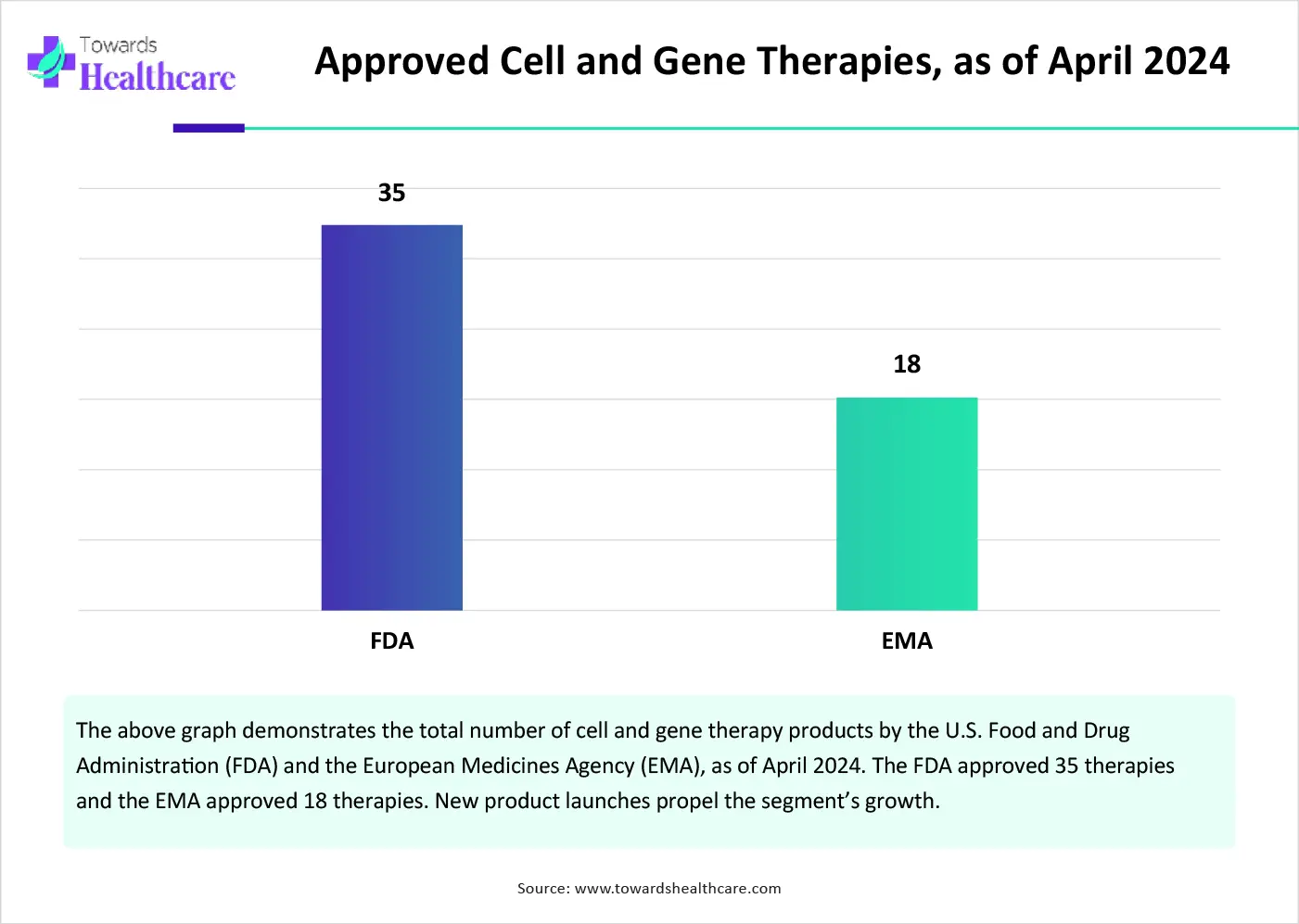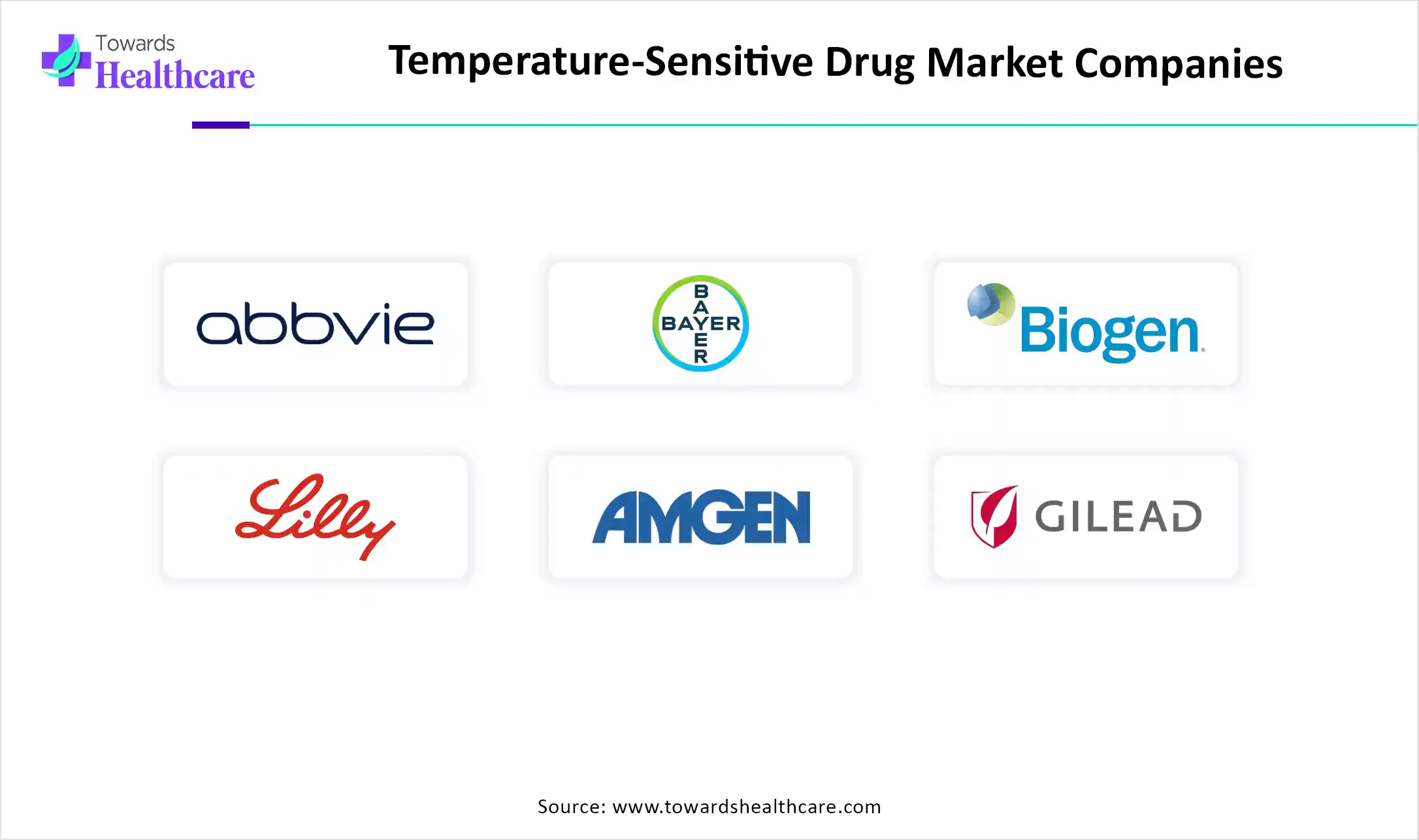January 2026

The worldwide temperature-sensitive drug market is experiencing significant expansion, with projections indicating a revenue increase reaching several hundred million dollars by the end of the forecast period, spanning 2025 to 2034. This growth is driven by emerging trends and strong demand across key sectors.
The use of temperature-sensitive drugs such as biologics, vaccines, biosimilars, etc, is increasing. At the same time, maintaining their temperatures for stability is crucial, due to which the demand for cold chain logistics, along with AI integration, is also rising. Furthermore, various developments in these temperature-sensitive drugs are leading to new collaborations or launches of products. Similarly, advancement in industrial sectors as well as growing diseases in different regions are also driving their use. Thus, all these developments are promoting the temperature-sensitive drug market growth.
There are various drug products whose safety and effectiveness are lost with a change in temperature. These temperature-sensitive drugs, thus, require proper temperature control throughout their production till it is effectively administered. Furthermore, the vaccines, biologics, biosimilars, etc., are temperature-sensitive drugs whose use in the treatment of various diseases is rising. Thus, with their growing use, the cold chain solutions are also increasing. Furthermore, their growing research is also increasing the need for cold chain logistics, smart sensors, temperature monitors, etc.
The use of AI in the temperature-sensitive drug market is growing as it is improving cold chain logistics solutions. The AI algorithms can quickly detect any deviation from the ideal temperature. Therefore, improved inventory management, predictive maintenance, real-time monitoring, and optimized logistics can be enhanced by AI in cold chain management. Furthermore, these developments protect the temperature-sensitive drugs by ensuring their safety and stability throughout their transportation. Thus, the integration of AI in cold chain logistics can enhance the storage and transportation of temperature-sensitive drugs.
Growing Vaccinations
There is a rise in the occurrences of various diseases as well as infections. This, in turn, increases the demand for vaccination. The vaccines used are temperature sensitive due to which means they require stringent temperature control to maintain their safety and effectiveness. If the temperature changes, it can make these vaccines ineffective or even harmful in certain cases. Hence, this, in turn, increases the demand for cold chain logistics as well to maintain their stability in the given cold temperature. Thus, the growing use of vaccines is driving the temperature-sensitive drug market growth.
Lack of infrastructure
A proper infrastructure is needed to meet the temperature conditions, depending on the drugs developed, for their storage as well as transportation. These facilities may not be present in most of the rural areas, as well as in other regions, as they can be costly. Thus, the lack of infrastructure can adversely affect temperature-sensitive drugs.
Why is Rising Demand for Biosimilars an Opportunity in the Temperature-Sensitive Drug Market?
Biosimilars are showing promising results in the treatment of various diseases. This, in turn, is increasing their use in hospitals. These biosimilars are temperature-sensitive products. Thus, the demand for well-developed infrastructure as well as cold chain logistics for maintaining the required temperature of these biosimilars also increases. Therefore, various new cold chain solutions are being developed for biologics during their transport to maintain them within a stable environment, without affecting their effectiveness. Thus, this promotes the temperature-sensitive drug market growth.
For instance,
By product type, the vaccines segment held the largest share of the market in 2024. Due to growing immunization campaigns and programs, the use of vaccines increased, which contributed to the market growth.
By product type, the biologics segment is expected to show the fastest growth rate at a notable CAGR during the predicted time. The use of biologics is growing in the treatment of various diseases, which in turn is increasing their demand in the market.
By route of administration type, the injectable segment led the market in 2024 and is expected to show the highest growth during the upcoming years. Various temperature-sensitive drugs were administered through injectables, as they provided rapid action and maintained the drug's stability.
By distribution channel type, the hospital pharmacies segment held the largest share of the market in 2024. The temperature-sensitive products in the hospital pharmacies were handled in controlled temperature, maintaining their stability and quality standards, enhancing their use.
By distribution channel type, the online pharmacies segment is expected to show the fastest growth rate during the forthcoming period. The online pharmacies are offering home deliveries, which enhances the convenience of the patients.
By storage temperature type, the refrigerated (2°C to 8°C) segment led the market in 2024. Most of the temperature-sensitive drugs require refrigeration to maintain their stability, which in turn, enhances the market growth.
By storage temperature type, the frozen (-20°C and below) segment is expected to show the highest growth during the predicted time. The development of new therapies that are temperature sensitive, such as cell or gene therapies, requires frozen temperatures, increasing their demand in the market.
By therapeutic area type, the infectious diseases segment held the dominating share of the global market in 2024. The growth in infectious diseases caused a rise in the use of vaccines or biologics. This promoted the market growth.
The graph represents the total number of infectious disease cases reported in year of 2024. It indicates that different types of infectious diseases are rising. Hence, it increases the demand for the use of temperature-sensitive drugs for their effective management. Thus, this in turn will ultimately promote the market growth. (Source - GOV.UK)
By therapeutic area type, the oncology segment is expected to show the fastest growth rate during the upcoming years. Various targeted or immunotherapies are being developed that are temperature-sensitive to deal with growing cancer. This increases the need for cold chain logistics.

By end user, the hospitals segment led the market in 2024. Different types of temperature-sensitive drugs were effectively used for the treatment of a variety of diseases in hospitals with advanced infrastructure. This contributed to the market growth.
By end user, the homecare settings segment is expected to show the highest growth during the forthcoming period. In the homecare settings, the use of temperature-sensitive drugs is increasing with the help of cold chain packaging and home deliveries.
North America dominated the temperature-sensitive drug market in 2024. North America consisted of a well-developed healthcare sector, where the development, as well as the use of biologics, increased. This contributed to the market growth.
The industries in the U.S. are well developed, which in turn is enhancing the production of various biologics to meet their rising demand. At the same time, the presence of advanced cold chain supplies also enhances their transportation.
The growing diseases in Canada are increasing the use of biologics. Moreover, to maintain their temperature range, various warehouses, temperature monitoring systems, etc., are also being developed.
Asia Pacific is expected to host the fastest-growing temperature-sensitive drug market during the forecast period. To deal with the rising diseases, various vaccination campaigns or programs are being conducted in the Asia Pacific. This enhances the market growth.
China consists of a large population, which in turn increases the demand for vaccines as well as biosimilars, which are temperature-sensitive to minimize the risk of growing diseases. This, in turn, increases the production of temperature-sensitive drugs.
India is well known for its generic drug manufacturing. At the same time, the development and export of biosimilars is growing, which in turn, also increases the use of cold chain logistics to maintain their temperature throughout the transportation.
Europe is expected to grow significantly in the temperature-sensitive drug market during the forecast period. The industries in Europe are utilizing various advanced technologies for monitoring temperature rates or for enhancing the warehouse infrastructure to maintain proper conditions for developing biosimilars or biologics. This promotes the market growth.
The growing diseases in Germany are increasing the demand for vaccinations as well as biosimilars. This, in turn, is enhancing the use of refrigeration along with the cold chain logistics to store these products for a long period of time.
The industries in the UK are focused on the development of various new temperature-sensitive drugs. This, in turn, is increasing the adoption of temperature-sensitive monitors to monitor and maintain the required temperature along with advanced technologies.

By Product Type
By Route of Administration
By Distribution Channel
By Storage Temperature
By Therapeutic Area
By End User
By Region
January 2026
January 2026
January 2026
December 2025